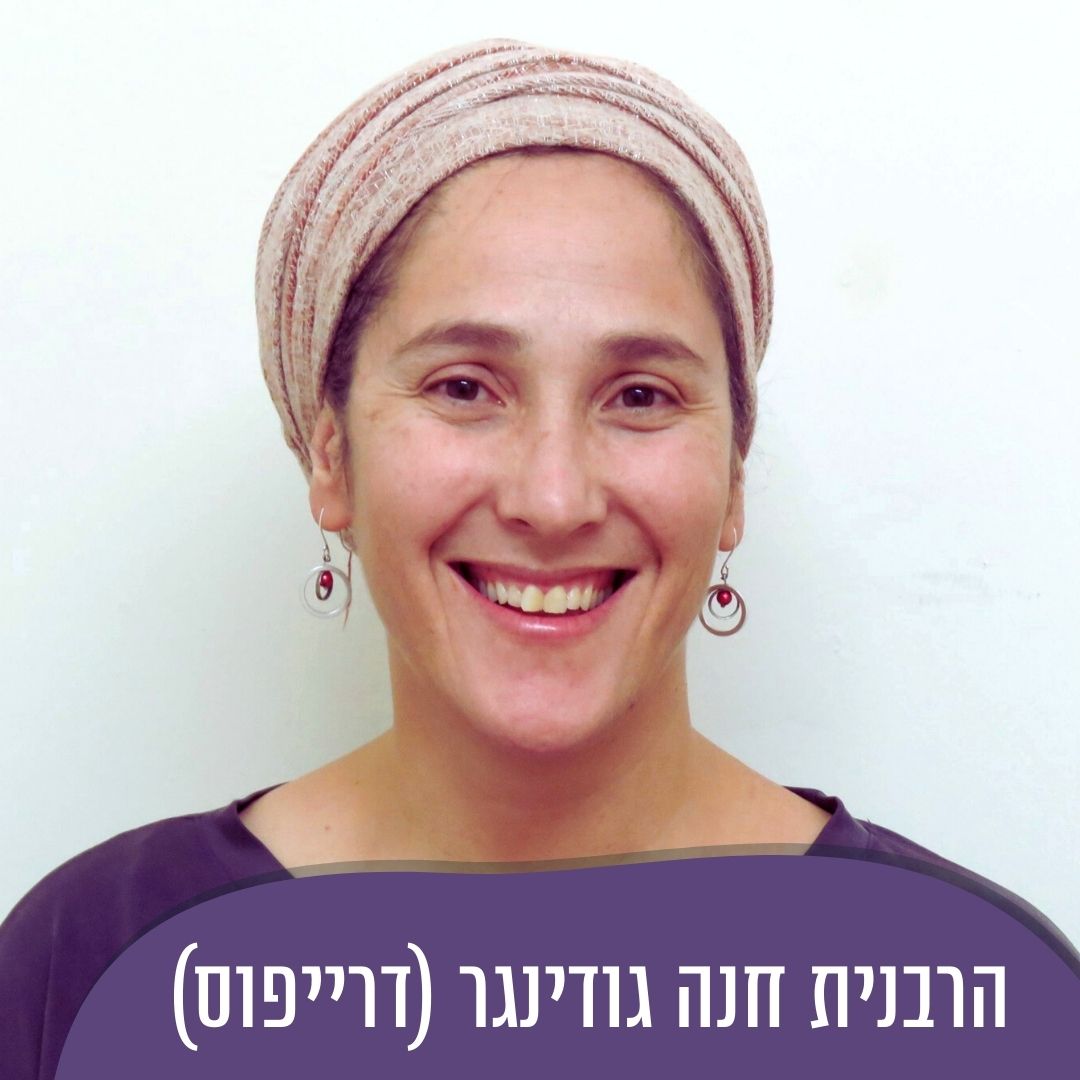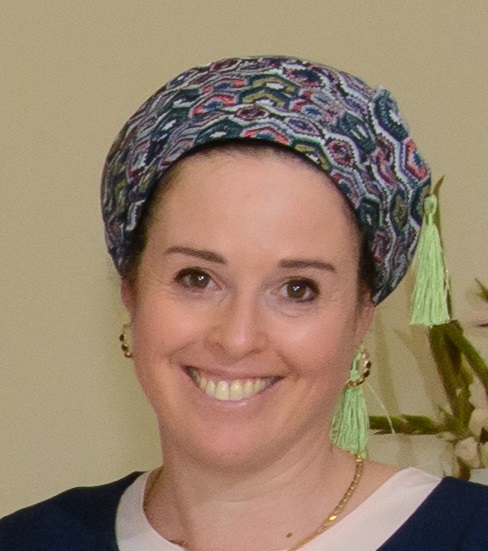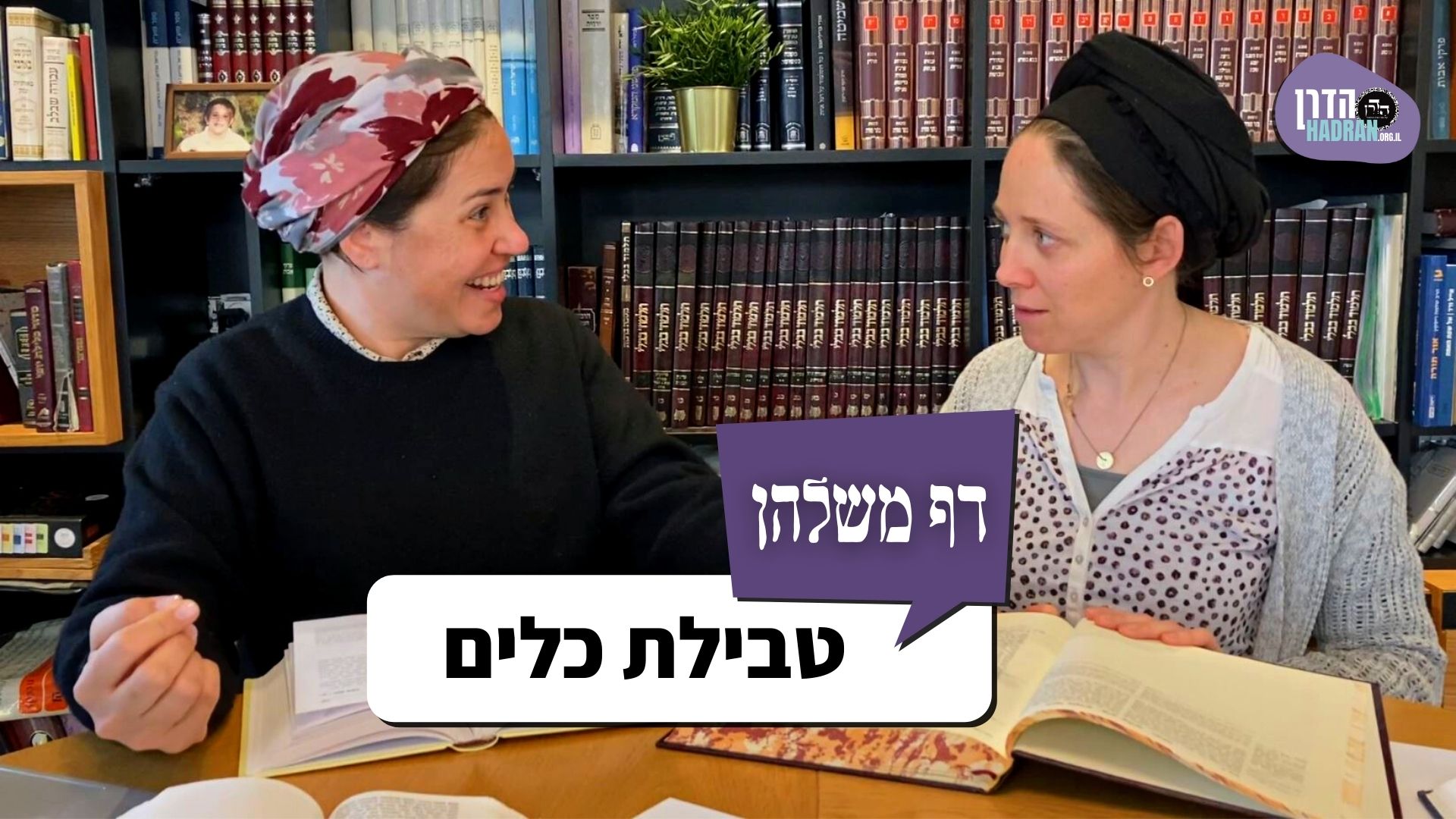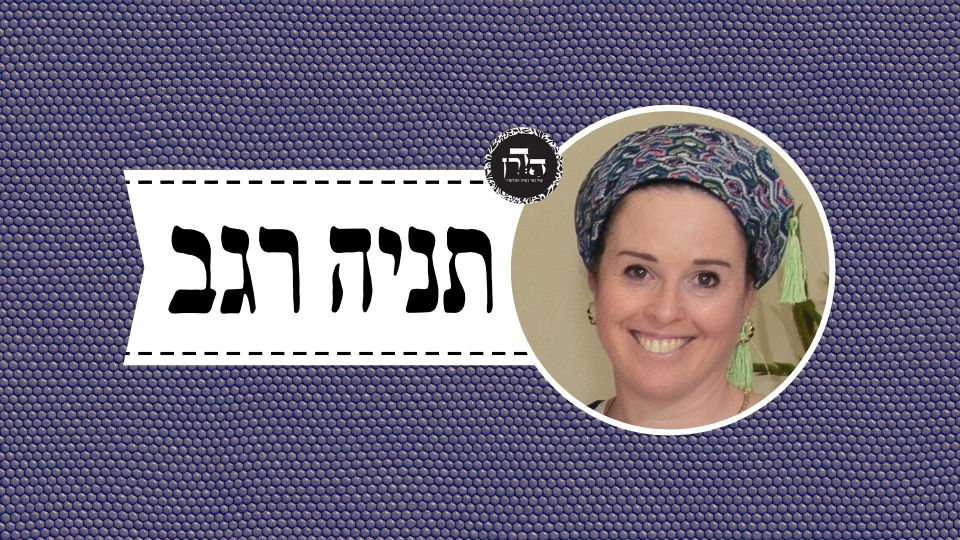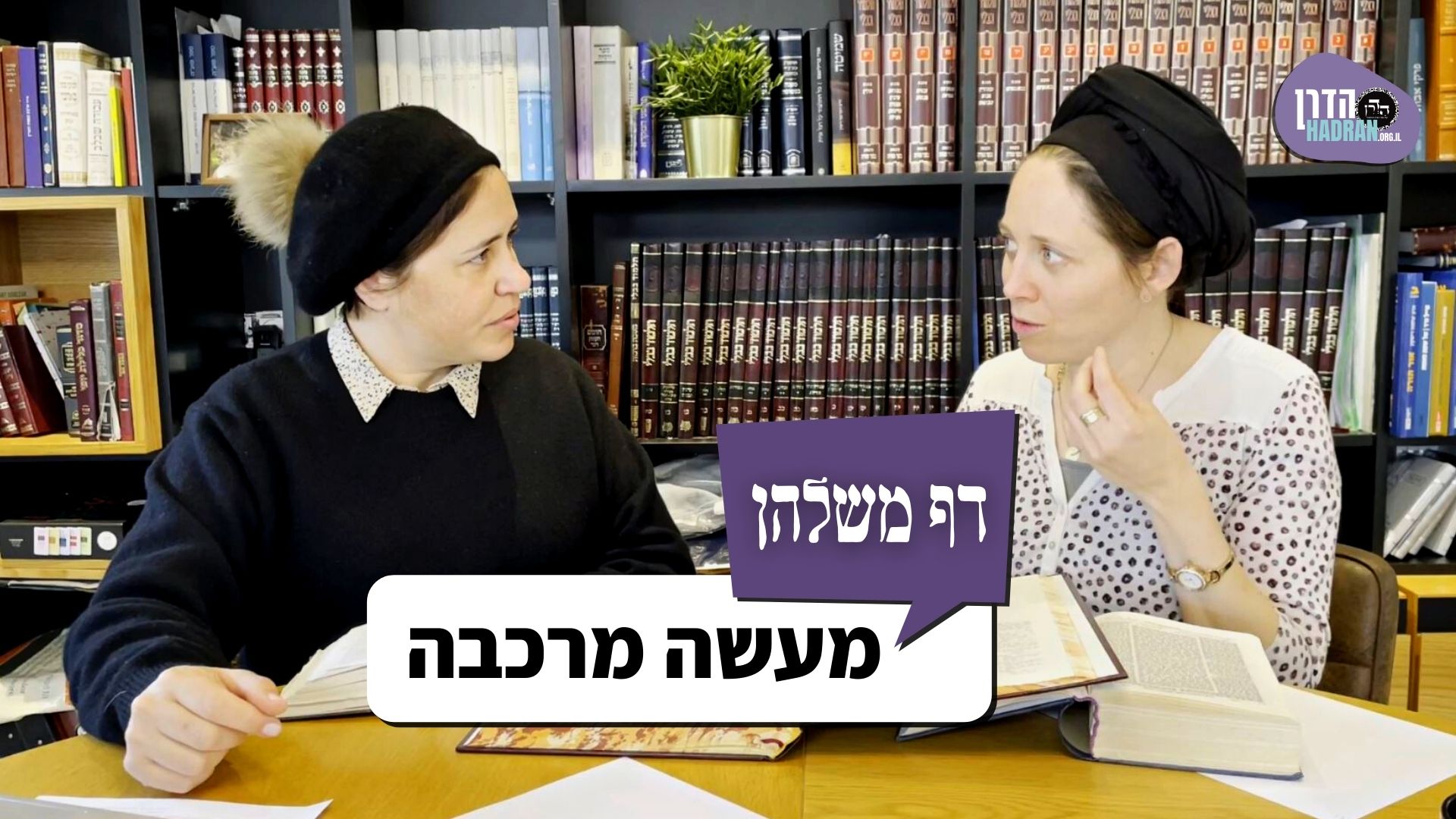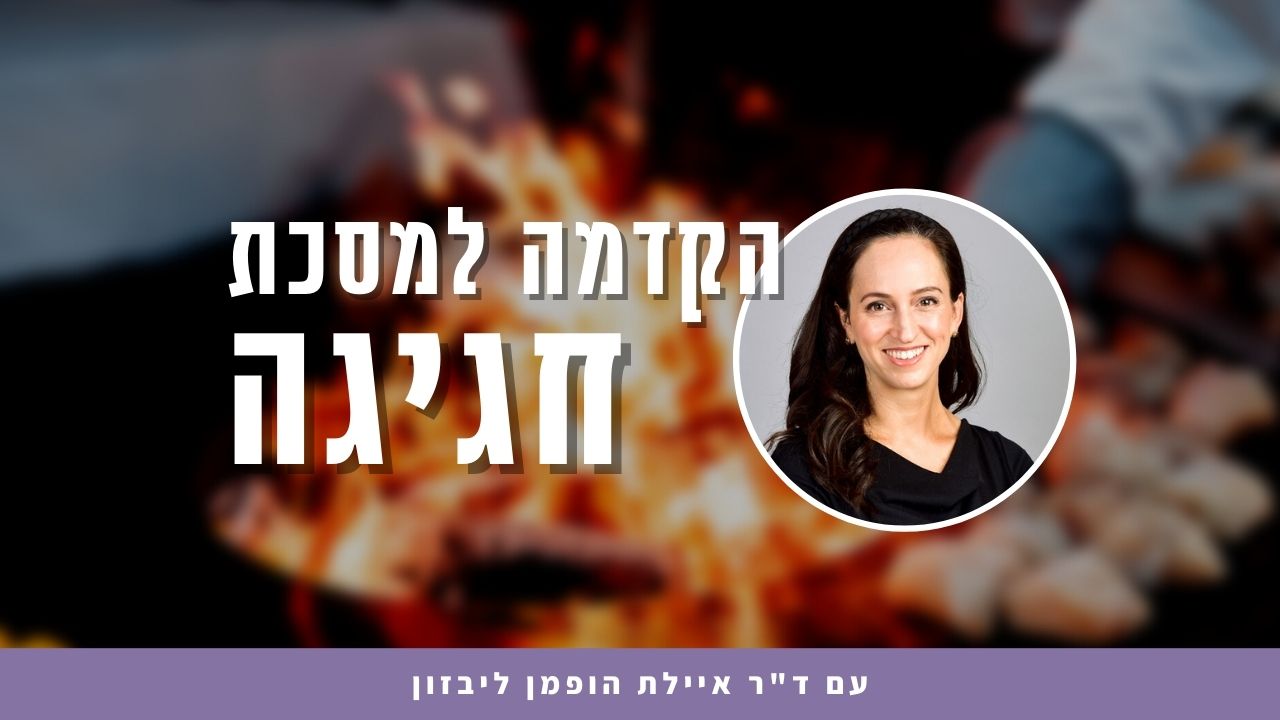חגיגה ח
אַלְמָא קָסָבַר — חֲגִיגַת אַרְבָּעָה עָשָׂר לָאו דְּאוֹרָיְיתָא.
Apparently, he holds that the Festival peace-offering of the fourteenth does not apply by Torah law, and therefore one may bring it even from second-tithe funds.
אָמַר מָר, בֵּית הִלֵּל אוֹמְרִים: מִן הַמַּעֲשֵׂר. אַמַּאי? דָּבָר שֶׁבְּחוֹבָה הוּא, וְכׇל דָּבָר שֶׁבְּחוֹבָה אֵינוֹ בָּא אֶלָּא מִן הַחוּלִּין? אָמַר עוּלָּא: בְּטוֹפֵל.
§ The Master said in the baraita that Beit Hillel say: Festival peace-offerings may be brought even from the second tithe. The Gemara asks: Why? It is an obligatory matter, and any obligatory matter may come only from non-sacred property. Ulla said: This is referring to a case where one combines, i.e., the offering is purchased with a combination of second-tithe funds and non-sacred money. The Gemara adds that amora’im dispute the details of this halakha.
חִזְקִיָּה אָמַר, טוֹפְלִין בְּהֵמָה לִבְהֵמָה, וְאֵין טוֹפְלִין מָעוֹת לְמָעוֹת. וְרַבִּי יוֹחָנָן אָמַר: טוֹפְלִין מָעוֹת לְמָעוֹת, וְאֵין טוֹפְלִין בְּהֵמָה לִבְהֵמָה.
Ḥizkiya said: One may combine one animal with another animal. If one has a large household for which one animal will not suffice, he brings one animal for the Festival offering from non-sacred money and he may combine funds of second tithe to purchase a second animal. Since he has fulfilled his obligation of the Festival offering by bringing one animal from non-sacred money, he may bring the others from second tithe or animal tithes. But one may not combine money with other money, i.e., one may not combine second-tithe funds with non-sacred money toward the purchase of one animal for the Festival offering. And Rabbi Yoḥanan said: One may combine money with other money, but one may not combine one animal with another animal.
תַּנְיָא כְּווֹתֵיהּ דְּחִזְקִיָּה, תַּנְיָא כְּווֹתֵיהּ דְּרַבִּי יוֹחָנָן. תַּנְיָא כְּווֹתֵיהּ דְּרַבִּי יוֹחָנָן: ״מִסַּת״ — מְלַמֵּד שֶׁאָדָם מֵבִיא חוֹבָתוֹ מִן הַחוּלִּין. וּמִנַּיִן שֶׁאִם רָצָה לְעָרֵב מְעָרֵב — תַּלְמוּד לוֹמַר: ״כַּאֲשֶׁר יְבָרֶכְךָ ה׳ אֱלֹהֶיךָ״.
The Gemara comments: It is taught in a baraita in accordance with the opinion of Ḥizkiya, and it is taught in another baraita in accordance with the opinion of Rabbi Yoḥanan. The Gemara elaborates: It is taught in a baraita in accordance with the opinion of Rabbi Yoḥanan: “After the measure of the gift offering of your hand” (Deuteronomy 16:10). This teaches that a person brings his obligatory offering from non-sacred property. And from where is it derived that if one wishes to mix he may mix? The verse states: “As the Lord your God blesses you” (Deuteronomy 16:10), i.e., one may use any money with which God has blessed him, even second tithe. The term: Mix, means combining money from different sources.
תַּנְיָא כְּווֹתֵיהּ דְּחִזְקִיָּה: ״מִסַּת״ — מְלַמֵּד שֶׁאָדָם מֵבִיא חוֹבָתוֹ מִן הַחוּלִּין, בֵּית שַׁמַּאי אוֹמְרִים: יוֹם רִאשׁוֹן מִן הַחוּלִּין, מִכָּאן וְאֵילָךְ מִן הַמַּעֲשֵׂר. וּבֵית הִלֵּל אוֹמְרִים: אֲכִילָה רִאשׁוֹנָה מִן הַחוּלִּין, מִכָּאן וְאֵילָךְ מִן הַמַּעֲשֵׂר.
It is taught in a baraita in accordance with the opinion of Ḥizkiya: “After the measure” (Deuteronomy 16:10). This teaches that a person brings his obligatory offering from non-sacred property. Beit Shammai and Beit Hillel disagree with regard to this issue, as Beit Shammai say: On the first day one may bring only from non-sacred property. From this point forward one may buy the animal from the second-tithe money. And Beit Hillel say: The first eating must be from non-sacred property. From this point forward one may bring from the second-tithe money. The phrase: The first eating, means the first animal that one eats, which is in accordance with Ḥizkiya’s opinion.
וּשְׁאָר כׇּל יְמוֹת הַפֶּסַח, אָדָם יוֹצֵא יְדֵי חוֹבָתוֹ בְּמַעֲשֵׂר בְּהֵמָה. בְּיוֹם טוֹב מַאי טַעְמָא לָא?
The baraita concludes: All this applies on the first day of the Festival. But with regard to all the other days of Passover, on which one is obligated to bring peace-offerings of rejoicing, a person fulfills his obligation even with animal tithes, and certainly with funds of second tithe. The Gemara asks: What is the reason that one does not fulfill his obligation with animal tithes on the Festival?
אָמַר רַב אָשֵׁי: דִּלְמָא אָתֵי לְעַשּׂוֹרֵי בְּיוֹם טוֹב, וְאִי אֶפְשָׁר לְעַשֵּׂר בְּיוֹם טוֹב מִשּׁוּם סְקַרְתָּא.
Rav Ashi said: There is a concern that if one requires additional animals, perhaps he may come to separate tithes on the Festival itself, and one may not separate tithes on the Festival due to the red dye [sikrata]. Every tenth animal is marked with red dye, and as it is prohibited to dye on a Festival due to the labor of writing, one may not separate tithes on a Festival.
מַאי מַשְׁמַע דְּהַאי מִסַּת לִישָּׁנָא דְחוּלִּין הוּא? דִּכְתִיב: ״וַיָּשֶׂם הַמֶּלֶךְ אֲחַשְׁוֵרוֹשׁ מַס עַל הָאָרֶץ״.
The Gemara asks: From where may it be inferred that this: “After the measure [missat],” mentioned in the verse, is a term for non-sacred property? The Gemara answers: As it is written: “And the king Ahasuerus laid a tribute [mas] upon the land” (Esther 10:1), which is clearly referring to a tribute of non-sacred property.
יִשְׂרָאֵל יוֹצְאִין יְדֵי חוֹבָתָן בִּנְדָרִים וּנְדָבוֹת. תָּנוּ רַבָּנַן: ״וְשָׂמַחְתָּ בְּחַגֶּךָ״ — לְרַבּוֹת כׇּל מִינֵי שְׂמָחוֹת לְשִׂמְחָה. מִכָּאן אָמְרוּ חֲכָמִים: יִשְׂרָאֵל יוֹצְאִין יְדֵי חוֹבָתָן בִּנְדָרִים וּנְדָבוֹת וּבְמַעְשַׂר בְּהֵמָה,
§ The mishna stated that Israelites fulfill their obligation to eat peace-offerings of rejoicing with their vow offerings and gift offerings. The Sages taught that the verse: “And you shall rejoice in your feast” (Deuteronomy 16:14) comes to include all types of rejoicing as constituting a fulfillment of the mitzva of rejoicing. From here the Sages stated: Israelites fulfill their obligation to eat peace-offerings of rejoicing with their vow offerings and gift offerings and likewise with animal tithes.
וְהַכֹּהֲנִים בְּחַטָּאת וְאָשָׁם וּבִבְכוֹר, וּבְחָזֶה וָשׁוֹק. יָכוֹל אַף בָּעוֹפוֹת וּבִמְנָחוֹת — תַּלְמוּד לוֹמַר: ״וְשָׂמַחְתָּ בְּחַגֶּךָ״,
And the priests fulfill their obligation of rejoicing with the meat of sin-offerings and guilt-offerings, and with firstborn offerings, and with the breast and thigh of peace-offerings. One might have thought that they can fulfill their obligation even by eating bird-offerings and meal-offerings. Therefore, the verse states: “And you shall rejoice in your feast.”
מִי שֶׁחֲגִיגָה בָּאָה מֵהֶם, יָצְאוּ אֵלּוּ שֶׁאֵין חֲגִיגָה בָּאָה מֵהֶם.
This teaches that eating those animals from which the Festival peace-offering may come, i.e., sheep and cattle, is a fulfillment of the mitzva of rejoicing. This excludes these, i.e., bird-offerings and meal-offerings, from which the Festival peace-offering may not come.
רַב אָשֵׁי אָמַר: מִ״וְּשָׂמַחְתָּ״ נָפְקָא. יָצְאוּ אֵלּוּ שֶׁאֵין בָּהֶן שִׂמְחָה.
Rav Ashi said: There is no need to derive this halakha from “And you shall rejoice in your feast” by explaining that the word feast is referring to the Festival peace-offering. Rather, this halakha is derived simply from the phrase “And you shall rejoice.” This excludes those bird-offerings and meal-offerings that do not have an element of rejoicing, as the joy of eating is provided only by animal meat.
וְרַב אָשֵׁי, הַאי ״בְּחַגֶּךָ״ מַאי עָבֵיד לֵיהּ? הַהוּא, לְכִדְרַב דָּנִיאֵל בַּר קַטִּינָא. דְּאָמַר רַב דָּנִיאֵל בַּר קַטִּינָא אָמַר רַב: מִנַּיִין שֶׁאֵין נוֹשְׂאִין נָשִׁים בַּמּוֹעֵד — שֶׁנֶּאֱמַר: ״וְשָׂמַחְתָּ בְּחַגֶּךָ״, וְלֹא בְּאִשְׁתֶּךָ.
The Gemara asks: And what does Rav Ashi do with the phrase: “In your feast”? The Gemara answers: That phrase comes to teach in accordance with the statement of Rav Daniel bar Ketina. As Rav Daniel bar Ketina said that Rav said: From where is it derived that one may not marry a woman on the intermediate days of the Festival? As it is stated: “And you shall rejoice in your feast,” indicating that one should rejoice only in your feast and not with your wife.
מַתְנִי׳ מִי שֶׁיֵּשׁ לוֹ אוֹכְלִים מְרוּבִּים וּנְכָסִים מוּעָטִים — מֵבִיא שְׁלָמִים מְרוּבִּים וְעוֹלוֹת מוּעָטוֹת. נְכָסִים מְרוּבִּים וְאוֹכְלִין מוּעָטִין — מֵבִיא עוֹלוֹת מְרוּבּוֹת וּשְׁלָמִים מוּעָטִין.
MISHNA: One who has many eaters, i.e., members of his household, and a small amount of property, may bring many peace-offerings and few burnt-offerings, so he can feed the members of his household with the peace-offerings. If one has much property and few eaters, he should bring many burnt-offerings and few peace-offerings.
זֶה וָזֶה מוּעָט — עַל זֶה נֶאֱמַר: מָעָה כֶּסֶף, שְׁתֵּי כֶּסֶף. זֶה וָזֶה מְרוּבִּים — עַל זֶה נֶאֱמַר: ״אִישׁ כְּמַתְּנַת יָדוֹ כְּבִרְכַּת ה׳ אֱלֹהֶיךָ אֲשֶׁר נָתַן לָךְ״.
If both these and those, his property and the members of his household, are few, with regard to this individual it is stated in the mishna (2a) that the Sages established the smallest amount of one silver ma’a for the burnt-offering of appearance in the Temple and two silver coins for the Festival peace-offerings. If both his eaters and his property are many, with regard to this individual it is stated: “Every man shall give as he is able, according to the blessing of the Lord your God, which He has given you” (Deuteronomy 16:17).
גְּמָ׳ שְׁלָמִים מְרוּבִּים. מֵהֵיכָא מַיְיתֵי? הָא לֵית לֵיהּ! אָמַר רַב חִסְדָּא: טוֹפֵל וּמֵבִיא פַּר גָּדוֹל. אָמַר לֵיהּ רַב שֵׁשֶׁת: הֲרֵי אָמְרוּ טוֹפְלִין בְּהֵמָה לִבְהֵמָה!
GEMARA: With regard to the mishna’s statement that one who has many eaters and a small amount of property may bring many peace-offerings, the Gemara asks: From where can he bring many peace-offerings? He does not have much property. Rav Ḥisda said: He combines his property with the second-tithe money and brings a large bull. In this way he will have a lot of meat from the peace-offering. Rav Sheshet said to him: The Sages said that one may combine an animal with another animal.
מַאי קָאָמַר לֵיהּ? אִילֵּימָא הָכִי קָאָמַר לֵיהּ: הֲרֵי אָמְרוּ טוֹפְלִין בְּהֵמָה לִבְהֵמָה אֲבָל לֹא מָעוֹת לְמָעוֹת, וְלֵימָא לֵיהּ: אֵין טוֹפְלִין מָעוֹת לְמָעוֹת! אֶלָּא הָכִי אֲמַר לֵיהּ: הֲרֵי אָמְרוּ אַף טוֹפְלִין בְּהֵמָה לִבְהֵמָה.
Since Rav Sheshet’s objection is unclear, the Gemara asks: What is he saying to Rav Ḥisda? If we say that he was saying to him as follows: They said that one may only combine an animal with another animal, but one may not combine money with other money to purchase one large bull, then let him simply say: One may not combine money with other money. Rather, this is what he said to him: The Sages said that one may even combine an animal with another animal. Why did you, Rav Ḥisda, limit him to the purchase of one large animal? Why not also suggest that this individual may bring other animals from second-tithe money?
כְּמַאן? דְּלָא כְּחִזְקִיָּה וּדְלָא כְּרַבִּי יוֹחָנָן!
The Gemara asks: In accordance with whose opinion did Rav Sheshet say this? It is not in accordance with the opinion of Ḥizkiya, who said that one may combine only one animal with another animal, and not in accordance with the opinion of Rabbi Yoḥanan, who said that one may combine only money with other money.
וְכִי תֵּימָא: אָמוֹרָאֵי הוּא דִּפְלִיגִי, מַתְנְיָיתָא לָא פְּלִיגִי. וְהָא קָתָנֵי: אֲכִילָה רִאשׁוֹנָה מִן הַחוּלִּין.
And if you would say: It is the amora’im who disagree, whereas the baraitot that were cited in support of their opinions do not disagree and therefore Rav Sheshet may present his own opinion on the matter, this cannot be the case, as the baraita teaches: The first eating must come from non-sacred property. In other words, the first animal one eats must come entirely from non-sacred property, and combining is permitted only for the second animal. This indicates that although one may combine an additional animal with that first one, one may not combine money with other money to purchase even one animal.
מַאי אֲכִילָה רִאשׁוֹנָה — שִׁיעוּר דְּמֵי אֲכִילָה רִאשׁוֹנָה מִן הַחוּלִּין.
The Gemara explains. What is the meaning of: The first eating? This means that when one combines non-sacred money with second-tithe money, the monetary value of the required measure of the first eating from the offering must come from non-sacred funds. However, the remaining value of that animal may come from second-tithe funds. Therefore, according to the opinion of Rav Sheshet, one may combine an animal with another animal, i.e., by purchasing two separate animals, one from non-sacred funds and one from second-tithe money. Another option is to purchase one animal with combined funds, provided that the first eating is from non-sacred funds.
אָמַר עוּלָּא אָמַר רֵישׁ לָקִישׁ: הִפְרִישׁ עֶשֶׂר בְּהֵמוֹת לַחֲגִיגָתוֹ, הִקְרִיב חָמֵשׁ בְּיוֹם טוֹב רִאשׁוֹן — חוֹזֵר וּמַקְרִיב חָמֵשׁ בְּיוֹם טוֹב שֵׁנִי. רַבִּי יוֹחָנָן אָמַר: כֵּיוָן שֶׁפָּסַק, שׁוּב אֵינוֹ מַקְרִיב.
§ Ulla said that Reish Lakish said: If one separated ten animals for the purpose of his Festival peace-offering, and he sacrificed five of them on the first day of the Festival, he may return and sacrifice the remaining five on the second day of the Festival, or on any of the other days. There is no concern for the prohibition of: “You shall not add” (Deuteronomy 13:1), as though he were celebrating the first day twice, because the remaining offerings merely complete the first day’s offerings. Rabbi Yoḥanan said: Since he stopped after the first five offerings on the day on which he first brought the Festival peace-offerings, he may no longer sacrifice the remaining animals on the other days, as that would be considered celebrating an extra day.
אָמַר רַבִּי אַבָּא, וְלָא פְּלִיגִי: כָּאן בִּסְתָם, כָּאן בִּמְפָרֵשׁ.
Rabbi Abba said: And these amora’im do not disagree, as they are referring to different circumstances. Here, Rabbi Yoḥanan is speaking of a case where one did not specify when he intended to sacrifice these offerings, and therefore it is assumed that he meant to sacrifice them all on the first day. There, Reish Lakish is referring to a case where one explicitly said at the outset that he intended to bring them on all the days of the Festival (Rabbeinu Ḥananel).
הַאי סְתָם הֵיכִי דָמֵי? אִילֵּימָא דְּלֵיכָּא שְׁהוּת בַּיּוֹם לִקְרַב, הַאי דְּלָא אַקְרְבִינְהוּ — דְּלֵיכָּא שְׁהוּת בַּיּוֹם.
The Gemara asks: With regard to this case where he did not specify, what are the circumstances? If we say that there was no time left in the day to sacrifice, i.e., he brought all his animals on the first day and realized that there was not enough time to sacrifice all of them, one can assume that the reason that he did not bring them is that there was no time left in the day. If so, his offering on another day is certainly considered merely the completion of the obligations of the first day. In this case his bringing of the additional offerings is not prohibited.
וְאֶלָּא דְּלֵית לֵיהּ אוֹכְלִין, הַאי דְּלָא אַקְרְבִינְהוּ — דְּלֵית לֵיהּ אוֹכְלִין.
But rather, you must say that this is referring to a case where he does not have enough eaters in his household, and as one may not have leftovers, he did not sacrifice the remaining offerings. Here too, the fact that he did not sacrifice them is because he does not have enough eaters. Again, this cannot be the case in which it is prohibited to sacrifice the extra offerings.
לָא צְרִיכָא, דְּאִיכָּא שְׁהוּת בַּיּוֹם וְאִית לֵיהּ אוֹכְלִין, מִדִּבְקַמָּא לָא אַקְרְבִינְהוּ, שְׁמַע מִינַּהּ שַׁיּוֹרֵי שַׁיְּירִינְהוּ.
The Gemara answers: No, it is necessary to teach this ruling only in a case where there is time left in the day and he has eaters in his household. From the fact that he did not sacrifice them on the first day of the Festival, one can conclude from it that he left them intentionally. Therefore, he is no longer permitted to sacrifice them on the other days of the Festival.
וְהָכִי נָמֵי מִסְתַּבְּרָא, דְּכִי אֲתָא רָבִין אָמַר רַבִּי יוֹחָנָן: הִפְרִישׁ עֶשֶׂר בְּהֵמוֹת לַחֲגִיגָתוֹ, הִקְרִיב חָמֵשׁ בְּיוֹם טוֹב רִאשׁוֹן — חוֹזֵר וּמַקְרִיב חָמֵשׁ בְּיוֹם טוֹב שֵׁנִי. קַשְׁיָין אַהֲדָדֵי.
The Gemara comments: So too, it is reasonable that Rabbi Yoḥanan agrees that if one specifies his intentions he may sacrifice the offerings on the remaining days, as when Ravin came from Eretz Yisrael to Babylonia he said that Rabbi Yoḥanan said: If one separated ten animals for his Festival peace-offering, and he sacrificed five on the first day of the Festival, he may return and sacrifice the other five on the second day of the Festival. These two statements of Rabbi Yoḥanan, cited by Ulla and Ravin respectively, apparently contradict each other.
אֶלָּא לָאו שְׁמַע מִינַּהּ: כָּאן בִּסְתָם, כָּאן בִּמְפָרֵשׁ. שְׁמַע מִינַּהּ.
Rather, isn’t it correct to conclude from this contradiction that this statement here is dealing with a case where one did not specify, whereas there it is referring to a situation where one stated his intentions explicitly? The Gemara concludes: Indeed, conclude from here that it is so.
אִיתְּמַר נָמֵי, אָמַר רַב שֶׁמֶן בַּר אַבָּא אָמַר רַבִּי יוֹחָנָן:
It was also stated that Rav Shemen bar Abba said that Rabbi Yoḥanan said:

